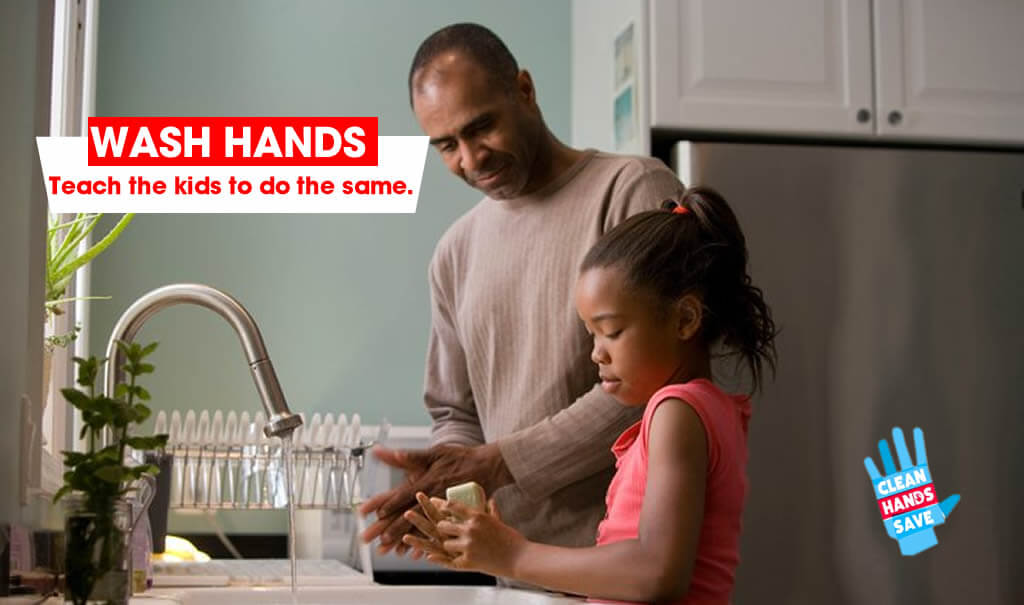- Have any questions?
- 0809 992 8864
- info@afrabchem.com
COVID-19: How to Protect Yourself Against Coronavirus

7 Tips To Boost Your Productivity, Health, And Wellness At Work in 2020
January 7, 2020
Handwashing: Clean Hands Save Lives – Recommended Steps to take on Effective Handwashing
May 5, 2020- Experts say the canceling of events that draw large crowds is an important step in combating the further spread of the novel coronavirus.
- The virus spreads like other viruses that cause common respiratory illnesses, such as the flu: via “droplets” that are excreted by coughing, sneezing, and breathing.
- Anytime an individual is within close proximity to someone with an infection, there’s the potential to spread it through aerosolized droplets.
- Transmission can also occur through contact with contaminated surfaces.
- New research suggests that the virus can live on certain surfaces, such as plastic and stainless steel, for up to 3 days.
- 1. Personal risk
Like many viruses, there are lots of things you can do to reduce your own risk of contracting COVID-19. These measures will also reduce your risk of contracting the common cold or flu, both of which are spread by cough and sneeze droplets.Carry tissues at all times and use them to cover your mouth and nose when you sneeze. Bin the tissue (preferably in a bin with a lid) and wash your hands or use hand sanitiser. If a tissue isn’t available, cough or sneeze into your elbow rather than your hands.
Wash your hands frequently and properly. This means using the WHO recommended handwashing method, hot water and soap. If you can’t wash your hands, use a hand sanitiser containing at least 60% alcohol and wash your hands at the earliest opportunity.Avoid touching your face, especially your mouth, eyes and nose, with hands that haven’t been washed.
Avoid contact with people who are unwell.
Wearing surgical face masks makes little difference outside of hospital environments as they must be worn and removed correctly, changed frequently and disposed of safely to be effective. Rising demand from the public for protective face masks is also causing shortages for hospitals around the world.There isn’t yet a vaccine but various teams of scientists across the globe are in the process of developing a vaccine to protect against COVID-19. There also isn’t a specific treatment yet available, although many people will recover from mild infections following rest and fluids. Those who go on to develop pneumonia will have their symptoms managed and treated.
- 2. Social distancing
The government have issued new guidance which includes avoiding all non-essential contact with other people. This includes avoiding pubs, bars, cinemas and other social venues. Minimise contact with others as much as possible. If you are able to work from home or avoid public transport, you should. - 3. Know the signs and symptoms
It’s important that we’re able to spot the signs of COVID-19 so that we can act quickly if we need to. As COVID-19 is part of the coronavirus family which includes SARS, MERS and the common cold, many of its symptoms are respiratory and flu-like.If you do not have a fever, it is somewhat unlikely you are infected, although some people are able to be infected and pass on the virus without symptoms. Typically, a runny nose and sneezing are not symptoms of this virus.
According to a study published in The Lancet, the proportion of infected people with the following symptoms of SARS-CoV-2 infection is:
Fever – 98%.
Cough – 76%.
Shortness of breath – 55%.
Muscle ache or tiredness – 44%.
Coughing up sputum – 28%.
Headache – 8%.
Coughing up blood – 5%. - 4. Isolate yourself
One of the best ways to prevent the spread of the new coronavirus is to isolate anyone who may be carrying the virus. The virus has an incubation period of up to fourteen days, meaning that within two weeks of infection, symptoms should show. But some people are able to carry the virus without displaying any symptoms so it’s crucial that people who are at especially high risk are isolated even if they don’t have any symptoms. -
5. When should you self-isolate?
Anyone who experiences symptoms of fever or a new cough is being asked to self-isolate for seven days from the start of their symptoms. If one person develops symptoms in a household, the rest of the household must isolate for fourteen days. If anyone else then develops symptoms, they should isolate for seven days from the onset of their symptoms, even if that means isolating for more than fourteen days.If after the isolation period your fever is gone and you feel better, you can end isolation. Your cough may persist after the fever is gone.
-
6. What does self-isolation involve?
If you need to self-isolate, you should take action immediately. You must stay inside and avoid all contact with other people.You must:
Stay at home.
Not go to work, school or public areas.
Not use public transport like buses, trains, tubes or taxis.
Avoid visitors to your home.
Ask friends, family members or delivery services to carry out errands on your behalf. This includes shopping, getting medication and food.
If you live in a house with others, you should isolate yourself from them and avoid sharing cutlery, crockery, towels and bedding.
If you have children at home, you should take advice about whether they need to self-isolate too. If not, and you can keep yourself isolated from them, you should ensure someone else takes them to and from school.
When deliveries are made, ask the delivery company to leave them outside your door rather than handing them over personally.
If your symptoms get worse, become difficult to manage at home or stop you from doing daily tasks like looking at your phone or getting out of bed, call NCDC on 08000CORONA or the relevant number for your country.




